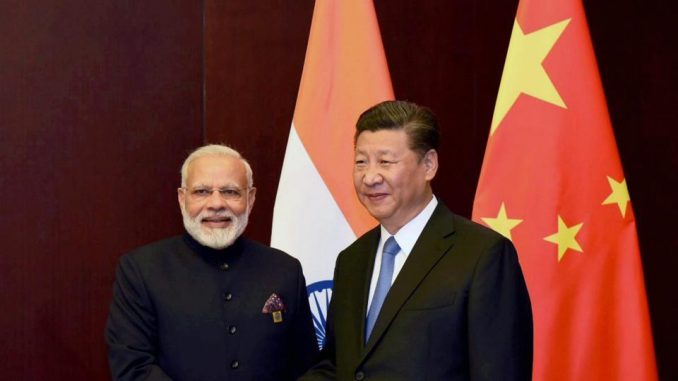
By Indrani Bagchi
India and China are preparing for a series of high-level interactions culminating with Prime Minister Narendra Modi’s visit to China for the SCO summit in June. Both sides are trying to dial back some of the more hardline approaches to each other that have characterised bilateral relations in the past few months.
Teams of Indian and Chinese experts on transborder rivers will meet in Hangzhou between March 26-30 to discuss sharing of information etc – during the Doklam crisis last year, China refused to share hydrological data with India. India has been concerned at the dam-building exercise by China on the Yarlung Tsangpo or Brahmaputra river that would have implications for downstream areas.
In April 13-15, India and China will hold its strategic and economic dialogue between the NDRC of China and the Niti Aayog of India. The last such dialogue was held in 2016 and its working groups cover infrastructure, energy, environment, new and renewable energy and high technology cooperation between India and China. This will be followed by a meeting of SCO foreign ministers in Beijing at the end of April. This spate of interactions will culminate with the PM’s visit to Qingdao for the SCO summit on June 9.
Following Doklam and subsequent tensions, India and China are trying to put the pieces together of their bilateral relationship. This was most evident with foreign secretary Vijay Gokhale writing a note to government departments and state governments to desist from attending events by the Dalai Lama as bilateral relations were in a “sensitive” place. The note, leaked to the media, has given the impression that India has caved into Chinese pressure and is rolling back engagements with the Dalai Lama.
A statement from MEA on Friday said India’s position on Dalai Lama was “clear and consistent. He is a revered religious leader and is deeply respected by the people of India. There is no change in that position. His Holiness is accorded all freedom to carry out his religious activities in India.” While it is correct that successive Indian governments have at times sensitised different parts of the government on engaging with the Dalai Lama, the foreign secretary’s letter was greeted with dismay.
Asked for his assessment of the leaked note, Claude Arpi, China analyst said, “there is no doubt that the coming months will be hot (especially when the passes in the Central and Eastern sectors open). But suppose India had bent backwards in Doklam, would have the Chinese been ‘nicer’ and supported a seat for India in the UN Security Council? The answer is NO. Bending backwards will not help Delhi in the long run.”
Earlier in February, Gokhale travelled to Beijing for his first meetings with the Chinese leadership in his current position. The schedule of meetings for the coming months was firmed up, he met both Chinese foreign minister Wang Yi and special representative Yang Jiechi. Both Wang and Yang had visited India after Doklam. Wang Yi credited the resolution of the Doklam crisis to the “mature” leadership of both countries.
Source: Times of India

Leave a Reply